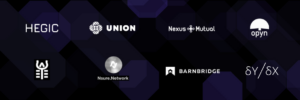DeFi is changing the future of our financial system as we know it.
The DeFi industry is growing and getting more popular. People are attracted to the idea of new possibilities for their finances, however, it can be confusing, so let’s see if we can make this topic easier to understand.
Using DeFi, you can gain a lot of knowledge on new and evolving technologies that may be part of the future. The main objective of this article is to reveal relevant information on how participating in DeFi can result very useful, and also some risks that need to be considered before getting into this environment.
Sometimes it can be confusing to understand the utilities of DeFi so this article is only for bringing educational tools, and with them, comprehending why using DeFi is more than only investments.
For a better understanding of these topics, you can find the needed info in our previous articles “What is Defi” and “Advantages and downsides of Decentralized Finance”.
Why participate in DeFi?
DeFi is the alternative for a centralized financial ecosystem that works with blockchain technology, and doesn’t rely on a central authority like banks, financial institutions, governments, etc. DeFi gives utility to cryptocurrencies as it enables users to gain interest from lending and borrowing cryptocurrency, buying insurance, etc.
Let’s check out some benefits that using DeFi can bring.
Transparency:
Technologies like Blockchain allow the users to track and verify their transactions on a ledger. All this info is available with only a few clicks. This way, if you’re interested in trading, you’re able to confirm the other person has the needed funds in their wallet before spending your capital.
Accessibility:
One of the chief goals of DeFi is to promote financial inclusion, by assuring people who don’t have access to a bank account because of their gender, or else, can make the same transactions as someone with a traditional bank account can make, only by having a smartphone.
Also, DeFi has gained a lot of popularity because of how easy it is to use it. Despite the big amount of concepts and technicalities, we’re now seeing many platforms that allow us to easily make transactions, and access the high performance available in DeFi.
Control:
By using De-Fi, anyone, not even the government can have access to your finances. The only person who can get to one’s finances is the person who has access to the private keys.
Also, as it doesn’t have any central authority that controls it, you can make transactions instantly without needing the approval of a financial or governmental institution.
High Rates:
One of the most appealing parts of decentralized finance for investors is its performance of it. DeFi takes place peer-to-peer. By eliminating all the middlemen, it means the lender can take more of the revenue made by fees.
As Philip Blows, the CEO of AQRU says: “To give an example, let’s compare it to a bank. A savings account with a bank returns 0.5% per year if people are lucky. The bank may well have made 10% on loaning customers’ money, but by the time they have covered their costs and taken their share, there’s not much left for the user. DeFi’s main cost is the upkeep of the website, which has attracted users looking to maximize their returns. “
Smart Contracts:
Smart contracts are highly programmable software that is stored in the blockchain, and can be set to run when certain conditions are met. This technology is tamper-proof and highly auditable.
To get a deeper understanding of the benefits that using DeFi could bring to you, I invite you to check out our latest article about the Advantages and Disadvantages of Decentralized Finance.
Where and how to buy DeFi coins
Thanks to the fast growth of DeFi, there are more and more platforms that can help you get on board with crypto easier than before.
To start, you will need to search for a Wallet, which is where you can store the crypto that you’ll use to participate in DeFi protocols. Some wallets work with more currencies than others. A great starter is always Metamask.
After you select the one that you like the most, and you’ve learned how to use it, the next step is to make a fundamental analysis of different DeFi projects, which means studying the value of the project you’re interested in according to its operative model, and its business model. With this information, you will be able to decide on the DeFi project in which you want to invest.
Then, you will need an exchange platform. DeFi exchanges are platforms that facilitate the trading of cryptocurrencies for other assets, including digital and fiat currencies. There are two kinds of exchanges, the Centralized and the Decentralized ones.
In a centralized platform, the company acts as a third party between a buyer and a seller. Since they are operated and controlled by a company, centralized exchanges offer more reliability. Some of these platforms are Gemini, Coinbase, etc.
As part of the Decentralized exchanges, you’re able to execute peer-to-peer transactions, and there’s no intermediary involucred. We can find DeFi platforms like Balancer, Uniswap, Blocknet, etc.
After identifying the platform that works better for you, the next step will be to buy the currency or token of the project you’re interested to invest in, and finally, is very important for you to keep an eye over your portfolio, maybe to make technical analysis about the behavior of the price of the project you’ve bought, so you can try to predict its value in the future, and be able to know when it’s time to invest, and when to keep your money.
Risks of DeFi investments
All kinds of investments come with a sizable risk, so before you go and experiment with DeFi exchange, you need to consider the next hazards you could find in the journey:
1.- Smart Contract Bugs.
In every code written by a human, there’s a slight possibility of error, and a smart contract code is not an exception. However, in this case, that little error can represent a loss of a lot of money.
2.- Regulatory Risk
DeFi protocols work with minor government supervision or regulation. This situation could change eventually, we don’t know when and if it’s going to happen. It is hard to predict how any new government regulations of DeFi protocols might affect DeFi protocols.
3.- Liquidity crisis
This happens when there’s a lock-up of funds and a lack of liquidity. For example, if you lend any crypto to others by using a liquidity pool, but then all of the assets of that crypto are subsequently borrowed, then the platform where you lent that crypto will indicate that there’s a 100% of that crypto utilized, and you will not be able to get your money back until any borrower return the funds to the pool.
4.- Volatility of currencies.
Cryptocurrencies and tokens have a very volatile character, so it is very difficult to predict whether the prices of any two cryptocurrencies will rise or fall. If the price of tokens inside a liquidity pool changes, then the exchange will rebalance its value, so the worth of those tokens locked inside the pool will be less than expected.
5.- Oracle failure
This happens when bad actors use a flash loan to buy or sell an asset that manipulates its price just long enough for them to arbitrage the difference and exploit a protocol for millions. Eventually, it is revealed what they’ve done, but by that time there’s nothing to do to retrieve the funds because of the unchangeable nature of the blockchain.
How to protect yourself against DeFi risks
If you’re planning to take part in a DeFi project, it is important to maintain a chain of knowledge about these subjects before you get deeper into it, keep analyzing and watching the behavior of your assets, and make decisions based on that.
Luckily, there are protection protocols like UNION Finance, that can help you to counteract these risks.
UNION Finance is a platform that gives security over some risks mentioned above to retail and institutional investors. Thanks to UNION’s protocol, one can have an additional layer of protection over smart contracts, exposure, and transactions.
This technology comes to the market with two principal solutions, C-OP (collateral optimization) and U-CDS (UNION Crypto Default Swaps).
UNION’s Collateral Optimization product solves the problem of inefficient collateralization for assets in DeFi borrow protocols and reduces the risk of holding cryptocurrency for extended periods.
UNION’s Crypto Default Swaps allow you to protect your capital against event risks, smart contract hacks, rug-pulls, and oracle attacks.
UNION protocol can help to solve some of the risks that investing in DeFi brings with it while growing our money with new alternatives that offer us a larger and bigger playground for investments, borrowings, and lendings in the crypto world.





